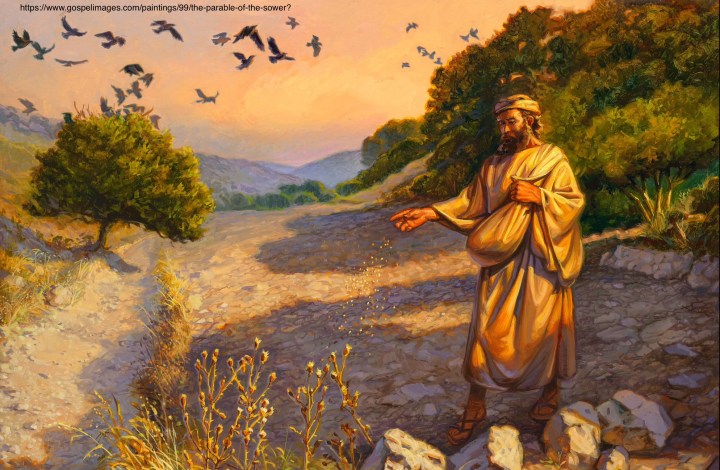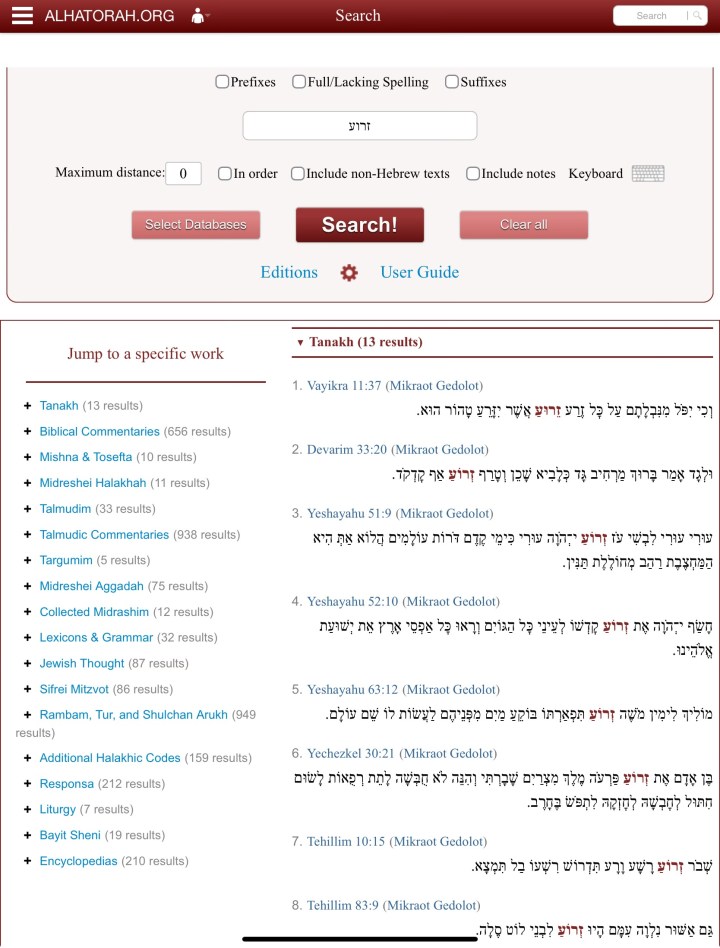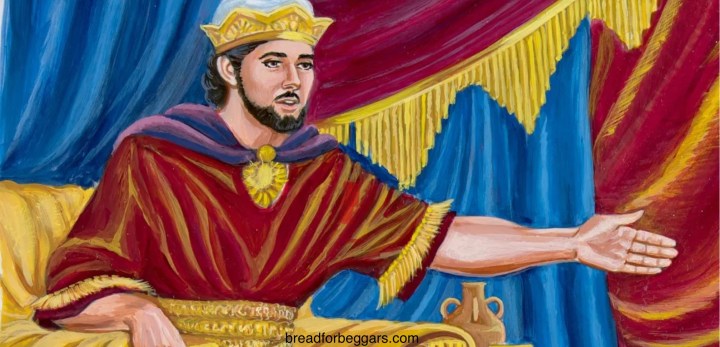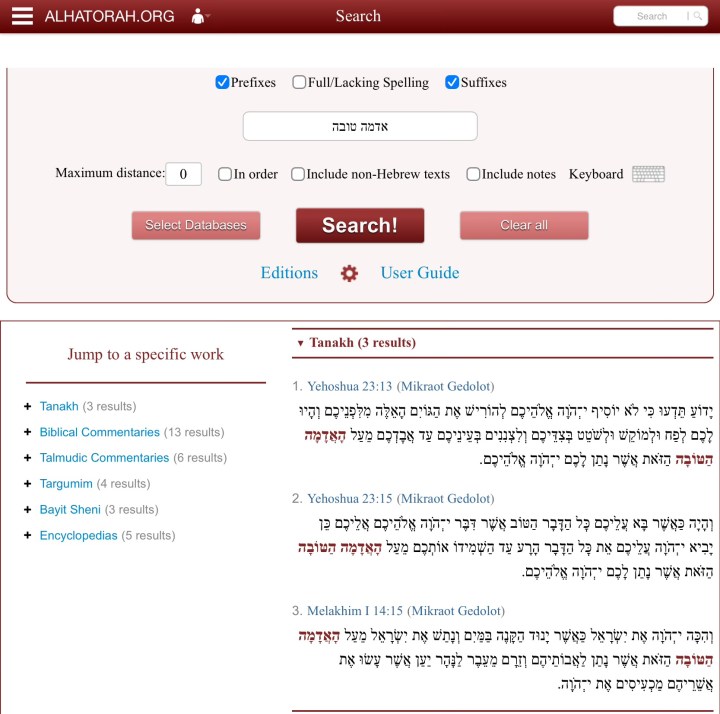- In a way, this is a follow-up to Blog 169. The Parable of the Sower
זרוע something sown בצרה Bozrah אשור Assyria/Asshur cognate permutations (challenge existent)
זרוע what was sown; arm cognate permutations (challenge existent) also Bozrah בצרה and Assyria/Asshur אשור
((And see within the זרוע cognate permutations group בשׂר which is flesh and tidings))


⦁ ▸
Tanakh (13 results)
1. Vayikra 11:37 (Mikraot Gedolot)
וְכִי יִפֹּל מִנִּבְלָתָם עַל כׇּל זֶרַע זֵרוּעַ אֲשֶׁר יִזָּרֵעַ טָהוֹר הוּא.
⦁ Leviticus 11:37
37 And if a part of (any such) carcass falls on any planting seed which is to be sown, it (remains) clean.
⦁ Leviticus 11:37 more literal per BDB
37 And if it/he falls from carcass upon כל of seed, plant which is sown, clean he.
2. Devarim 33:20 (Mikraot Gedolot)
וּלְגָד אָמַר בָּרוּךְ מַרְחִיב גָּד כְּלָבִיא שָׁכֵן וְטָרַף זְרוֹעַ אַף קׇדְקֹד.
⦁ Deuteronomy 33:20-21
20 And of Gad he said:
“Blessed is he who enlarges Gad;
He dwells as a lion,
And tears the arm and the crown of his head.
21 He provided the first part for himself,
Because a lawgiver’s portion was reserved there.
He came with the heads of the people;
He administered the justice of the LORD,
And His judgments with Israel.”
3. Yeshayahu 51:9 (Mikraot Gedolot)
עוּרִי עוּרִי לִבְשִׁי עֹז זְרוֹעַ י־ְהֹוָה עוּרִי כִּימֵי קֶדֶם דֹּרוֹת עוֹלָמִים הֲלוֹא אַתְּ הִיא הַמַּחְצֶבֶת רַהַב מְחוֹלֶלֶת תַּנִּין.
⦁ Isaiah 51:9
9 Awake, awake, put on strength,
O arm of the LORD!
Awake as in the ancient days,
In the generations of old.
Are You not (the arm) that cut Rahab apart,
And wounded the serpent?
4. Yeshayahu 52:10 (Mikraot Gedolot)
חָשַׂף י־ְהֹוָה אֶת זְרוֹעַ קׇדְשׁוֹ לְעֵינֵי כׇּל הַגּוֹיִם וְרָאוּ כׇּל אַפְסֵי אָרֶץ אֵת יְשׁוּעַת אֱלֹהֵינוּ.
⦁ Isaiah 52:10
10 The LORD has made bare His holy arm
In the eyes of all the nations;
And all the ends of the earth shall see
The salvation of our God.
5. Yeshayahu 63:12 (Mikraot Gedolot)
מוֹלִיךְ לִימִין מֹשֶׁה זְרוֹעַ תִּפְאַרְתּוֹ בּוֹקֵעַ מַיִם מִפְּנֵיהֶם לַעֲשׂוֹת לוֹ שֵׁם עוֹלָם.
⦁ Isaiah 63:12
12 Who led (them) by the right hand of Moses,
With His glorious arm,
Dividing the water before them
To make for Himself an everlasting name,
6. Yechezkel 30:21 (Mikraot Gedolot)
בֶּן אָדָם אֶת זְרוֹעַ פַּרְעֹה מֶלֶךְ מִצְרַיִם שָׁבָרְתִּי וְהִנֵּה לֹא חֻבְּשָׁה לָתֵת רְפֻאוֹת לָשׂוּם חִתּוּל לְחׇבְשָׁהּ לְחׇזְקָהּ לִתְפֹּשׂ בֶּחָרֶב.
⦁ Ezekiel 30:21
21 “Son of man, I have broken the arm of Pharaoh king of Egypt; and see, it has not been bandaged for healing, nor a splint put on to bind it, to make it strong enough to hold a sword.
7. Tehillim 10:15 (Mikraot Gedolot)
שְׁבֹר זְרוֹעַ רָשָׁע וָרָע תִּדְרוֹשׁ רִשְׁעוֹ בַל תִּמְצָא.
⦁ Psalms 10:15
15 Break the arm of the wicked and the evil (man);
Seek out his wickedness (until) You find none.
- ((Please notice that here his wickedness רשעו and arm זרוע are in the same cognate permutation group))
8. Tehillim 83:9 (Mikraot Gedolot)
גַּם אַשּׁוּר נִלְוָה עִמָּם הָיוּ זְרוֹעַ לִבְנֵי לוֹט סֶלָה.
⦁ Psalms 83:8
8(9H) Assyria also has joined with them;
They have helped the children of Lot.
Selah
- ((Please notice that here Assyria אשור and helped זרוע are in the same cognate permutation group. Asshur is also אשור.))
9. Tehillim 89:14 (Mikraot Gedolot)
לְךָ זְרוֹעַ עִם גְּבוּרָה תָּעֹז יָדְךָ תָּרוּם יְמִינֶךָ.
⦁ Psalms 89:13
13(14H) You have a mighty arm;
Strong is Your hand, and high is Your right hand.
10. Iyyov 22:8 (Mikraot Gedolot)
וְאִישׁ זְרוֹעַ לוֹ הָאָרֶץ וּנְשׂוּא פָנִים יֵשֶׁב בָּהּ.
⦁ Job 22:8
8 But the mighty man possessed the land,
And the honorable man dwelt in it.
11. Iyyov 26:2 (Mikraot Gedolot)
מֶה עָזַרְתָּ לְלֹא כֹחַ הוֹשַׁעְתָּ זְרוֹעַ לֹא עֹז.
⦁ Job 26:2
2 “How have you helped (him who is) without power?
(How) have you saved the arm (that has) no strength?
12. Iyyov 40:9 (Mikraot Gedolot)
וְאִם זְרוֹעַ כָּאֵל לָךְ וּבְקוֹל כָּמֹהוּ תַרְעֵם.
⦁ Job 40:9
9 Have you an arm like God?
Or can you thunder with a voice like His?
13. Divrei HaYamim II 32:8 (Mikraot Gedolot)
עִמּוֹ זְרוֹעַ בָּשָׂר וְעִמָּנוּ י־ְהֹוָה אֱלֹהֵינוּ לְעׇזְרֵנוּ וּלְהִלָּחֵם מִלְחֲמֹתֵנוּ וַיִּסָּמְכוּ הָעָם עַל דִּבְרֵי יְחִזְקִיָּהוּ מֶלֶךְ יְהוּדָה.
⦁ 2 Chronicles 32:8
8 With him (is) an arm of flesh; but with us is the LORD our God, to help us and to fight our battles.” And the people were strengthened by the words of Hezekiah king of Judah.
- ((Please notice that here “to help us” לעזרנו includes the cognate permutation group arm זרוע.))
~~~~~~~~~~~~~~~~~~~~~~~~~~~~~~~~~~~~~~~~~~~~~~~~~~~~~~~~
- The point of the italicized comments under the verses above is to be sure the reader recognizes that challenging the status quo, “the existent,” is not inherently “good” or inherently “evil,” that individual circumstances must be evaluated. We must always look at context.
- The word זרוע is (as you see) often translated as arm, but also as power and strength. We do pass to our descendants our strength, LORD willing, and hopefully only our weaknesses when they will help them be able to “see.”
~~~~~~~~~~~~~~~~~~~~~~~~~~~~~~~~~~~~~~~~~~~~~~~~~~~~~~~~
With Shinar we saw מזרע “from descendant;” in זרוע, we can also see ב “in” plus זרעoffspring; seed; descendant; arm. What are we to understand in the comparison of“from descendant” vs. “in descendent?” 🤔 Is there something about our seed having influence upon us – EDBH p.299, “The מ indicates that which emanates from an object or person,” compared to our being “in” ב them? We have all seen the elderly woman wearing the miniskirt and the wig, the “outer trappings” or “covering” of the younger generation (this is just an example, men may do this, too).
Another pertinent question for our time relates to technology. For example, how do we benefit “from” the cell phone or AI without being “in” them? Are we getting back again to the question of addictions and becoming entirely “in the house of?” – The EDBH p.26 definition of the root בית is “protect; contain.” These are difficult life challenges – how does it fit with the “right-to-die” discussion? A relative of mine took his own life in a complex setting of facing a future of dialysis for kidney failure in the face of an ongoing dependent relationship in a hostile marriage setting. A similar situation could certainly occur with one’s descendant(s). Who might want to live with a person who is a constant irritation? These are not simple questions, nor are the answers necessarily ones that mankind can answer. These are God questions. As we seek earnestly, so we find. There is no one “good” answer; life is not black and white. Medical settings deal with the ethics of situations like Karen Ann Quinlan in committee and look at each case individually. Solomon may have been wise enough (after asking God for wisdom to rule) to discern the truth of the matter between the two women fighting over the child in 1 Kings 3:16-28 on his own. But, often we who have not been given Solomon’s gift, may benefit from consultation.

Life has a way of bringing us to a state of dependence. And for each person, that transition, that part of the cycle, is a challenge.
⦁ John 21:18
18 Most assuredly, I say to you, when you were younger, you girded yourself and walked where you wished; but when you are old, you will stretch out your hands, and another will gird you and carry you where you do not wish.”
How do we answer such questions? The first answer, of course, is faith אמונה (from אמן). The second answer is willingness to change attitude נחם (same group as אמן) on all sides, and the third answer is in compassion רחם. All of these we have looked at recently.
~~~~~~~~~~~~~~~~~~~~~~~~~~~~~~~~~~~~~~~~~~~~~~~~~~~~~~~~
Parable of The Sower
⦁ Matthew 13:1-9
1 On the same day Jesus went out of the house and sat by the sea. 2 And great multitudes were gathered together to Him, so that He got into a boat and sat; and the whole multitude stood on the shore.
3 Then He spoke many things to them in parables, saying: “Behold, a sower went out to sow. 4 And as he sowed, some seed fell by the wayside; and the birds came and devoured them. 5 Some fell on stony places, where they did not have much earth; and they immediately sprang up because they had no depth of earth. 6 But when the sun was up they were scorched, and because they had no root they withered away. 7 And some fell among thorns, and the thorns sprang up and choked them. 8 But others fell on good ground and yielded a crop: some a hundredfold, some sixty, some thirty. 9 He who has ears to hear, let him hear!” •••
⦁ Matthew 13:18-23
18 “Therefore hear the parable of the sower: 19 When anyone hears the word of the kingdom, and does not understand it, then the wicked one comes and snatches away what was sown in his heart. This is he who received seed by the wayside. 20 But he who received the seed on stony places, this is he who hears the word and immediately receives it with joy; 21 yet he has no root in himself, but endures only for a while. For when tribulation or persecution arises because of the word, immediately he stumbles. 22 Now he who received seed among the thorns is he who hears the word, and the cares of this world and the deceitfulness of riches choke the word, and he becomes unfruitful. 23 But he who received seed on the good ground is he who hears the word and understands it, who indeed bears fruit and produces: some a hundredfold, some sixty, some thirty.”
~~~~~~~~~~~~~~~~~~~~~~~~~~~~~~~~~~~~~~~~~~~~~~~~~~~~~~~~

⦁ ▸ Tanakh (3 results)
1. Yehoshua 23:13 (Mikraot Gedolot)
יָדוֹעַ תֵּדְעוּ כִּי לֹא יוֹסִיף י־ְהֹוָה אֱלֹהֵיכֶם לְהוֹרִישׁ אֶת הַגּוֹיִם הָאֵלֶּה מִלִּפְנֵיכֶם וְהָיוּ לָכֶם לְפַח וּלְמוֹקֵשׁ וּלְשֹׁטֵט בְּצִדֵּיכֶם וְלִצְנִנִים בְּעֵינֵיכֶם עַד אֲבׇדְכֶם מֵעַל הָאֲדָמָה הַטּוֹבָה הַזֹּאת אֲשֶׁר נָתַן לָכֶם י־ְהֹוָה אֱלֹהֵיכֶם.
2. Yehoshua 23:15 (Mikraot Gedolot)
וְהָיָה כַּאֲשֶׁר בָּא עֲלֵיכֶם כׇּל הַדָּבָר הַטּוֹב אֲשֶׁר דִּבֶּר י־ְהֹוָה אֱלֹהֵיכֶם אֲלֵיכֶם כֵּן יָבִיא י־ְהֹוָה עֲלֵיכֶם אֵת כׇּל הַדָּבָר הָרָע עַד הַשְׁמִידוֹ אוֹתְכֶם מֵעַל הָאֲדָמָה הַטּוֹבָה הַזֹּאת אֲשֶׁר נָתַן לָכֶם י־ְהֹוָה אֱלֹהֵיכֶם.
⦁ Joshua 23:12-15
12 Or else, if indeed you do go back, and cling to the remnant of these nations—these that remain among you—and make marriages with them, and go in to them and they to you, 13 know for certain that the LORD your God will no longer drive out these nations from before you. But they shall be snares and traps to you, and scourges on your sides and thorns in your eyes, until you perish from this good ground which the LORD your God has given you.
14 “Behold, this day I am going the way of all the earth. And you know in all your hearts and in all your souls that not one thing has failed of all the good things which the LORD your God spoke concerning you. All have come to pass for you; not one word of them has failed. 15 Therefore it shall come to pass, that as all the good things have come upon you which the LORD your God promised you, so the LORD will bring upon you all harmful things, until He has destroyed you from this good ground which the LORD your God has given you.
3. Melakhim I 14:15 (Mikraot Gedolot)
וְהִכָּה י־ְהֹוָה אֶת יִשְׂרָאֵל כַּאֲשֶׁר יָנוּד הַקָּנֶה בַּמַּיִם וְנָתַשׁ אֶת יִשְׂרָאֵל מֵעַל הָאֲדָמָה הַטּוֹבָה הַזֹּאת אֲשֶׁר נָתַן לַאֲבוֹתֵיהֶם וְזֵרָם מֵעֵבֶר לַנָּהָר יַעַן אֲשֶׁר עָשׂוּ אֶת אֲשֵׁרֵיהֶם מַכְעִיסִים אֶת י־ְהֹוָה.
⦁ 1 Kings 14:15
15 For the LORD will strike Israel, as a reed is shaken in the water. He will uproot Israel from this good ground which He gave to their fathers, and will scatter them beyond the River, because they have made their wooden images/Asherah poles אשריהם, vexing (h3707. כָּעַס ḵâ‘as) the LORD.
~~~~~~~~~~~~~~~~~~~~~~~~~~~~~~~~~~~~~~~~~~~~~~~~~~~~~~~~
See that אשר and זרע are both in the group ארץ earth/land cognate permutations(decisive action).
Think of the earth/land as a “proving ground.”
~~~~~~~~~~~~~~~~~~~~~~~~~~~~~~~~~~~~~~~~~~~~~~~~~~~~~~~~
And for this word, “vex” כעס, weren’t we just speaking about “vexing” situations?

כעס p.122 enrage; anger;; cm express emotion (C37) but this may be an overly strong definition, because one of the subdefinitions is “regretting inappropriateness.” – NKJV translates the word as “grief.” (Psalm 6:7(8H). Stick with the cognate definition of “express emotion.”
Impression עשׂק Esek חשך darkness כעס vex cognate permutations(resist/endure) ◉
~~~~~~~~~~~~~~~~~~~~~~~~~~~~~~~~~~~~~~~~~~~~~~~~~~~~~~~~
Notice that ארץ and זרע and כעס include this two-letter word group:
עז/אש/עץ cognate permutations (strength/concentrate energy)
עץ is tree עז is goat אש is fire
~~~~~~~~~~~~~~~~~~~~~~~~~~~~~~~~~~~~~~~~~~~~~~~~~~~~~~~~
Listing of the Roots in the (resist/endure) ◉ חשך/כעס cognate permutations Group
oppose (A10)
אגז p.2 remove from tree (as in tree nut)
איש p.9 withstand; exist
עכס p.185 coil; wrap around
עקש p.191 distort; oppose correct way
hold back (A27)
אזק p.7 chain
אשך p.18 enclose
חזק p.77 hold strongly; strengthen
חשך p.91 darken; deprive of light
חשק p.91 surround
חשׂך p.91 reduce; hold back
עזק p.183 dig deeply
עסק (no entry; not in Scripture) occupy – in modern Hebrew, “business”
עשק p.194 grab; withhold another’s rights
עשׂק p.194 deal; claim
………………………………………………
emerge and separate (C18)
גזה p.39 cut off
גזע p.39 emerge; sprout from soil
יזע p.102 sweat out
יצא p.107 exit; come out
יצע p.108 extend; spread
ישה p.111 exist
ישח p.111 cramp
ישע p.112 save; grant essence of existence
כסא p.120 separate
כסה p.121 cover; withdraw from sight
כסח p.121 cut off
כשׂה p.124 cover
קסה p.230 flatten
קצה p.231 separate ends
קצח p.232 season; spice
קצע p.232 separate; cut off edges
קשא p.234 harden
קשה p.234 harden
קשח p.235 harden
קשׂה p.235 support
express emotion (C37)
געש p.42 agitate; move violently
יאש p.99 despair
יחשׂ p.103 relate to lineage
יעז p.106 threaten
יעץ p.107 deliberate; advise
כחש p.118 deny justified demands ● – see BDB in BHS incl. “feign obedience”
כעס p.122 enrage; anger
כעש p.122 enrage
………………………………………………
heighten attention (E17)
זכה p.66 purify
זקה p.69 spark; flame suddenly
סכה p.170 view; see
ציה p.216 wander in desolate places
שגא p.255 err; make mistakes
שגה p.255 err; make practical mistake
שגח p.255 view; concentrate attention ◀︎ see EDBH entry, esp. Genesis 8:1, ((and I remember my friend John Wells – “This, too, shall pass.”)) [[Have the patience of Noah… נח (position to influence goal)]]
שגע p.255 craze; derange
שכח p.262 forget due to distraction or inattention
שקה p.269 saturate
שקע p.270 embed deeply
שׂגא p.273 elevate; make great
שׂגה p.274 increase
שׂיח p.277 grow and develop
שׂכה p.277 arouse thoughts
react energetically to opposing stimuli (E28)
זעך p.68 cut off
זעק p.69 call out loudly
צחק p.216 laugh at; disparage – root for Isaac
צעק p.220 shout; call out loudly
שאג p.252 roar; emit emotional sounds
שחק p.260 pound to fine dust
שׂהק (no entry) groan – does not occur in Scripture (Yiddish, he laughed)
שׂחק p.276 express satisfaction in overcoming difficulties
~~~~~~~~~~~~~~~~~~~~~~~~~~~~~~~~~~~~~~~~~~~~~~~~~~~~~~~~
There is a word in Hebrew Scripture translated as endure, which is עמד to stand or to take a stand. We spoke about עמד previously.
⦁ Exodus 18:22-23
22 And let them judge the people at all times. Then it will be (that) every great matter they shall bring to you, but every small matter they themselves shall judge. So it will be easier for you, for they will bear (the burden) with you.
23 If you do this thing, and God so commands (h6680. צָוָה ṣâwâ) you, then you will be able to endure (h5975. עָמַד ‘âmaḏ), and all this people will also go to their place in peace.”
⦁ Exodus 18:22-23
22 וְשָׁפְט֣וּ אֶת־הָעָם֮ בְּכָל־עֵת֒ וְהָיָ֞ה כָּל־הַדָּבָ֤ר הַגָּדֹל֙ יָבִ֣יאוּ אֵלֶ֔יךָ וְכָל־הַדָּבָ֥ר הַקָּטֹ֖ן יִשְׁפְּטוּ־הֵ֑ם וְהָקֵל֙ מֵֽעָלֶ֔יךָ וְנָשְׂא֖וּ אִתָּֽךְ׃
23 אִ֣ם אֶת־הַדָּבָ֤ר הַזֶּה֙ תַּעֲשֶׂ֔ה וְצִוְּךָ֣ אֱלֹהִ֔ים וְיָֽכָלְתָּ֖ עֲמֹ֑ד וְגַם֙ כָּל־הָעָ֣ם הַזֶּ֔ה עַל־מְקֹמֹ֖ו יָבֹ֥א בְשָׁלֹֽום׃
~~~~~~~~~~~~~~~~~~~~~~~~~~~~~~~~~~~~~~~~~~~~~~~~~~~~~~~~
For עמד – Impression טמא/חמד/אמת cognate permutations (establish limits) – covet; truth; “unclean”
It is possible to “take a stand” on the middle ground. Do not overreact in either direction, discussed previously. See “in midst” תוך. h8432. תָּוֶךְ ṯâewḵ, a very common word, occurring 415 times in KJV, according to Strong’s. [cm press to center (D7)] and see that תוך is in the following group:
Impression כבד cognate permutations (allow/embrace [God’s] consequences)
Planting seeds challenges the “existent” plants that have already been growing in an area. In the Parable, the positive outcome depends on “good ground,” but good ground requires some preparation, some cultivation. Such is a garden.
⦁ Genesis 2:4-6
4 This is the history of the heavens and the earth when they were created, in the day that the LORD God made the earth and the heavens, 5 before any plant of the field was in the earth and before any herb of the field had grown. For the LORD God had not caused it to rain on the earth, and there was no man to till the ground; 6 but a mist went up from the earth and watered the whole face of the ground.

Challenging the existent in the “middle ground” requires that we allow/embrace [God’s] consequences. And being willing to hear challenges from either end of the spectrum. Rest assured, God looks at the individual circumstances, the pertinent context. The LORD looks at the heart. 1 Samuel 16:7. More literally, “looks TO the heart” ללבב.
Ⓒ Copyright Philip E. Gates; LogAndSpeck.com October 2025